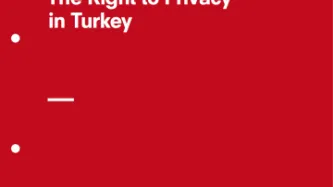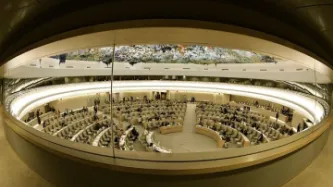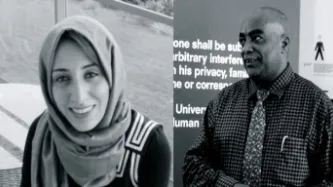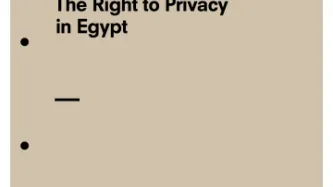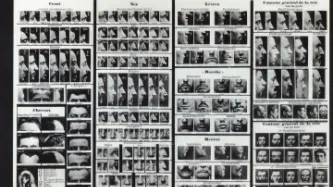Advanced Search
Content Type: Advocacy
This stakeholder report is a submission by Privacy International (PI), Jonction and Stat View International. Privacy International is a human rights organisation that works to advance and promote the right to privacy and fight surveillance around the world. Jonction is a human rights organisation based in Dakar, Senegal, which aims to promote sustainable and equitable development as well as human rights across Africa but particularly in Senegal. Stat View International is a research-based…
Content Type: Advocacy
This stakeholder report is a submission by Privacy International (PI) and the National Coalition of Human Rights Defenders in Kenya (NCHRD-K). PI is a human rights organisation that works to advance and promote the right to privacy around the world. NCHRD-K is a non-governmental organisation registered as a Trust in Kenya. It was established to strengthen the work of human rights defenders (HRDs) in the country by reducing their vulnerability to the risk of persecution and by enhancing their…
Content Type: Advocacy
This stakeholder report is a submission by Privacy International (PI). PI is a human rights organisation that works to advance and promote the right to privacy and fight surveillance around the world. PI wishes to bring concerns about the protection and promotion of the right to privacy in Turkey before the Human Rights Council for consideration in Turkey’s upcoming review.
Content Type: Advocacy
This stakeholder report is a submission by Privacy International (PI). PI is a human rights organisation that works to advance and promote the right to privacy and fight surveillance around the world. PI wishes to bring concerns about the protection and promotion of the right to privacy in Sweden before the Human Rights Council for consideration in Sweden’s upcoming Universal Periodic Review.
Content Type: Advocacy
What do Egypt, Kenya, Turkey, Guinea, and Sweden have in common? Despite having a Constitutional right to privacy, they are adopting and enforcing policies that directly challenge this human right.
These states are also up for a Universal Periodic Review this year before the United Nations Human Rights Council. UPRs are a mechanism within the Council aimed at improving the human rights situation in all countries and address human rights violations wherever they occur.
Despite having…
Content Type: Press release
Britain’s top counter-terrorism official has been forced to reveal a secret Government policy justifying the mass surveillance of every Facebook, Twitter, Youtube and Google user in the UK.
This disturbing policy was made public due to a legal challenge brought by Privacy International, Liberty, Amnesty International, the American Civil Liberties Union, Pakistani organisation Bytes for All, and five other national civil liberties organisations[fn]Canadian Civil Liberties…
Content Type: News & Analysis
Earlier this month, only a few days before the new president of Egypt was sworn in, leaked documents from the Ministry of Interior revealed that the government is trying to acquire mass surveillance equipment capable of monitoring social networks such as Facebook, Twitter, and YouTube.
While being billed as a way to monitor social media in order to “monitor security hazards in social networks” and “identify persons representing a danger on society” (sic), past and recent actions by…
Content Type: News & Analysis
The following is an excerpt from an Op-Ed written in the New Zealand Herald by Privacy International's Legal Officer Anna Crowe:
Since the release of documents by Edward Snowden nearly a year ago, New Zealand has often been seen as a passive participant in the Five Eyes intelligence-sharing alliance, not unlike a good kid hanging out with the wrong crowd.
However, Snowden documents released last month and the news that New Zealand appears to be sharing intelligence…
Content Type: News & Analysis
In the coming year, the elections to be held in Nigeria, Indonesia, Turkey, Ethiopia, Mexico, and Tunisia will be closely watched. Not only will the international community be monitoring the elections, but domestic governments could be monitoring their own citizens at the ballot box.
When courageous citizens brave uncertain political and societal contexts to exercise one of their fundamental human rights - the right to vote - they will rely on another fundamental human right - privacy. Privacy…
Content Type: News & Analysis
3 June 2014
The following article written by Carly Nyst, Privacy International's Legal Director, originially appeared on the Future Tense blog on Slate:
The news that the CIA is no longer using vaccination programs as a front for spying operations may come as a relief to many humanitarian workers. Yet their fears should not be completely assuaged, because the CIA’s activities—which undoubtedly threatened the safety of humanitarian workers and those they seek to help—pale in…
Content Type: News & Analysis
While the initial disclosures by Edward Snowden revealed how US authorities are conducting mass surveillance on the world's communications, further reporting by the Guardian newspaper uncovered that UK intelligence services were just as involved in this global spying apparatus. Faced with the prospect of further public scrutiny and accountability, the UK Government gave the Guardian newspaper an ultimatum: hand over the classified documents or destroy them.
The Guardian decided that having the…
Content Type: Press release
Privacy International today filed a legal complaint demanding an end to the unlawful hacking being carried out by GCHQ which, in partnership with the NSA, is infecting potentially millions of computer and mobile devices around the world with malicious software that gives them the ability to sweep up reams of content, switch on users' microphones or cameras, listen to their phone calls and track their locations.
The complaint, filed in the UK’s Investigatory Powers Tribunal, is the…
Content Type: Long Read
Today, Privacy International lodged a legal challenge to GCHQ's extensive and intrusive hacking of personal computers and devices. Below, we answer a few questions about the law underlying our complaint, and why it matters.
Is hacking legal?
As a result of the Snowden revelations, we have learned that GCHQ, often in partnership with the NSA, has been using malicious software to intrude upon our computers and mobile devices.
This type of activity, often called "hacking," is a…
Content Type: News & Analysis
After two years of pressing the Government to come clean on what, if anything, they are doing to investigate the potentially illegal export of the spyware FinFisher, a ruling today by the Administrative Court in Privacy International’s favour marks a significant turning point in our long-running campaign to bring more transparency and accountability to the surveillance industry.
The High Court slammed Her Majesty’s Revenue and Customs for not disclosing whether it was investigating…
Content Type: Press release
High Court slams HMRC for unlawful concealing of information surrounding export of spyware FinFisher
In a damning judgment today the Administrative Court declared that Her Majesty’s Revenue and Customs (HMRC) acted unlawfully and “irrationally” in issuing blanket refusals into the status of any investigation into the potentially illegal export of the spyware FinFisher to repressive regimes by UK-based Gamma International.
The case arises from Privacy International’s long-running campaign to bring transparency and accountability to the secretive surveillance technology industry. As…
Content Type: News & Analysis
May Day serves as a timely reminder that across their history, intelligence services have targeted trade unions and other organisations working for progressive social change.
Intelligence agencies have sought to justify expanded surveillance capabilities on the basis of pressing national security threats, particularly terrorism; however, as the Snowden revelations have highlighted, intelligence agencies actually often use these capabilities to monitor organisations that promote human…
Content Type: News & Analysis
NETMundial – a global conference initiated by the Brazilian government – has produced ‘The Multi-stakeholder Statement of São Paulo’, a Roadmap and Principles on internet governance that could herald new respect for the right to privacy online. However, the outcome document fails to adequately recognise the relationship between internet governance and mass surveillance, reflecting a larger problem that was present throughout the two-day meeting.
By the end of the conference, both the…
Content Type: News & Analysis
This year, an advanced surveillance system called the "Platform for Unified Monitoring and Analysis" will come online in Colombia. Frustrated with the the previous system, Esperanza, which only monitored telecommunications activity, the Colombian authorities turned to PUMA (Plataforma Única de Monitoreo y Análisis), a system that will allow them to monitor both telecommunications traffic and IP traffic in one source. The system, now based on Police property in Western Bogota, will now be…
Content Type: News & Analysis
UPDATE: The Kosovar minister of European integration – Vlora Citaku – announced in a tweet on April 29th that the government has approved the law on the interception of telecommunications. The draft law will now be reviewed by the parliament.
_____________________________________________________________
The government of Kosovo is currently preparing a new surveillance law that will turn Kosovar network operators and service providers into de facto agents of the Kosovo…
Content Type: News & Analysis
The government of Pakistan is proposing a new law that significantly threatens privacy rights, in a blatant attempt to establish a legal regime containing broad powers when it comes to obtaining, retaining, and sharing data obtained through criminal investigations, including communications data.
The Prevention of Electronic Crimes Act, 2014, contains worrying aspects that threaten the right to privacy, including a provision that would permit unregulated information sharing with foreign…
Content Type: Press release
The ruling today from the European Court of Justice, invalidating the European Union’s 2006 Data Retention Directive policy, was strong and unequivocal: the right to privacy provides a fundamental barrier between the individual and powerful institutions, and laws allowing for indiscriminate, blanket retention on this scale are completely unacceptable.
As the Court states, it is not, and never was, proportionate to spy on the entire population of Europe. The types of data retained under this…
Content Type: Press release
World leaders must commit to keeping invasive surveillance systems and technologies out of the hands of dictators and oppressive regimes, said a new global coalition of human rights organizations as it launched today in Brussels.
The Coalition Against Unlawful Surveillance Exports (CAUSE) – which includes Amnesty International, Digitale Gesellschaft, FIDH, Human Rights Watch, the New America Foundation’s Open Technology Institute, Privacy International, and Reporters without Borders – aims to…
Content Type: News & Analysis
Global problems require global solutions. One of the significant emerging threats to human rights and democracy today is the incredible and mostly unaccountable spread of surveillance technologies.
The rapid proliferation of these systems has created a shadowy billion-dollar industry, where companies sell spying equipment with impunity to authoritarian regimes, who wield them against journalists, political activists, and human rights defenders.
Given the scale and international scope of this…
Content Type: News & Analysis
In response to a consultation being undertaken by the UN in accordance with December’s General Assembly resolution on the right to privacy in the digital age, Privacy International today called on the United Nations to recognise that mass surveillance is incompatible with human rights.
The submission to the Office of the High Commissioner to Human Rights confronts some of the biggest challenges to the right to privacy in the digital age, debunks some of the justifications put forth…
Content Type: News & Analysis
Surveillance companies selling mass and intrusive spy technologies to human rights-abusing governments often are benefitting from the financial and institutional support from their home government, revealing a more closely-linked relationship between the sector and the State than previously believed.
Recent revelations concerning the funding of Hacking Team's surveillance technology with public money highlights the role of states in funding the development of surveillance…
Content Type: News & Analysis
The market for surveillance technologies has expanded so much in recent years that oversight has been totally unable to keep up, which has led to devastating consequences in the lives of human rights defenders in repressive regimes around the world.
According to a new study released today by Privacy International, the Open Technology Institute at the New America Foundation, and Digitale Gesellschaft, international efforts to oversee the trade in surveillance technologies are out…
Content Type: Advocacy
This stakeholder is a submission by Privacy International (PI), the Egyptian Initiative for Personal Rights (EIPR), the Association for Freedom of Thought and Expression (AFTE), and Association for Progressive Communication (APC). Together PI, EIPR, AFTE and APC wish to bring their concerns about the protection and promotion of the right to privacy in Egypt before the Human Rights Council for consideration in Egypt’s upcoming review.
Content Type: News & Analysis
For some time, many in the privacy and security community hoped for a completely open-source mobile phone, one that would allow for code to be examined and strengthened to prevent malicious attacks to a user's privacy.
So when Canonical, the company that primarily funds Ubuntu GNU/Linux, announced it was entering the mobile phone market, we were among the many who hailed this development. Given the company's track record, it was believed that the open-source philosophy of Ubuntu would…
Content Type: News & Analysis
In the late eighteenth century in Germany, ‘anthropologist’ Johann Blumenbach published a degenerative hypothesis that linked cranium and facial profiles to supposed character traits and accordingly divided human beings into five different races: the Caucasian, Mongolian, Malayan, Ethiopian, and American.1
In the 1870s, Alphonse Bertillon, a police officer in France, started a trend to identify criminals based on facial characteristics, alongside subsequent use of the camera to…
Content Type: News & Analysis
Facing intense scrutiny from a Swiss government inquiry into the human rights impact of the commercial surveillance trade, companies have packed up and are no longer attempting to export their spying technology from Switzerland.
Speaking with St. Galler Tagblatt, one of Switzerland’s largest German-language daily newspapers, government spokeswoman Marie Avet confirmed that the companies have cancelled export applications for surveillance technology - including all applications for…


